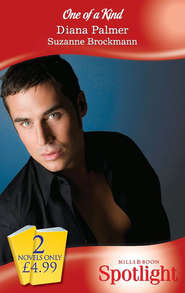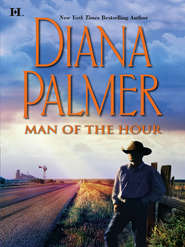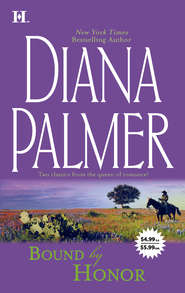По всем вопросам обращайтесь на: info@litportal.ru
(©) 2003-2024.
✖
The Maverick: The Maverick / Magnate’s Make-Believe Mistress
Автор
Год написания книги
2019
Настройки чтения
Размер шрифта
Высота строк
Поля
She sighed. “I guess it was a little over the top. I was going to call Hayes Carson and have him come out and save me, but it seemed a bit much for a little catcalling.”
He didn’t smile. “Let me tell you something. A little catcalling, if they get away with it, can lead to a little harassment, and if they get away with that, it can lead to a little assault, even if drugs or alcohol aren’t involved. Boys need limits, especially at that age. You should have called it in and let Hayes Carson come out here and scare the hell out of them.”
“Well, aren’t you the voice of experience!”
“I should be,” he replied. “When I was sixteen, an older boy hassled a girl in our class repeatedly on campus after school and made fun of me when I objected to it. A few weeks later, after she’d tried and failed to get somebody to do something about him, he assaulted her.”
She let out a whistle. “Heavy stuff.”
“Yes, and the teacher who thought I was overreacting when I told him was later disciplined for his lack of response,” he added coldly.
“We live in difficult times,” she said.
“Count on it.”
She glanced in the direction the car had gone. “I still have the license plate number,” she murmured.
“Give it to Hayes and tell him what happened,” he encouraged her. “Even if you don’t press charges, he’ll keep an eye on them. Just in case.”
She studied his face. “You liked that girl.”
“Yes. She was sweet and kind-natured. She…”
She moved a little closer. “She…?”
“She killed herself,” he said tightly. “She was very religious. She couldn’t live with what happened, especially after she had to testify to it in court and everyone knew.”
“They seal those files…” she began.
“Get real,” he shot back. “It happened in a small town just outside San Antonio, not much bigger than Jacobsville. I was living there temporarily with a nice older couple and going to school with her when it happened. The people who sat on the jury and in the courtroom were all local. They knew her.”
“Oh,” she said softly. “I’m sorry.”
He nodded.
“How long did the boy get?”
“He was a juvenile,” he said heavily. “He was under eighteen when it happened. He stayed in detention until he was twenty-one and they turned him loose.”
“Pity.”
“Yes.” He shook himself as if the memory had taken him over and he wanted to be free of it. “I never heard anything about him after that. I hope he didn’t prosper.”
“Was he sorry, do you think?”
He laughed coldly. “Sorry he got caught, yes.”
“I’ve seen that sort in court,” she replied, her eyes darkening with the memory. “Cocky and self-centered, contemptuous of everybody around them. Especially people in power.”
“Power corrupts,” he began.
“And absolute power corrupts absolutely,” she finished for him. “Lord Acton,” she cited belatedly.
“Smart gent.” He nodded toward the river. “Any new thoughts on the crime scene?”
She shook her head. “I like to go there alone and think. Sometimes I get ideas. I still can’t figure how he died here, when he was from San Antonio, unless he came voluntarily with someone and didn’t know they were going to kill him when they arrived.”
“Or he came down here to see somebody,” he returned, “and was ambushed.”
“Wow,” she said softly, turning to face him. “You’re good.”
There was a faint, ruddy color on his high cheekbones. “Thanks.”
“No, I mean it,” she said when she saw his expression. “That wasn’t sarcasm.”
He relaxed a little.
“We got off to a bad start, and it’s my fault,” Alice admitted. “Dead bodies make me nervous. I’m okay once I get started documenting things. It’s the first sight of it that upsets me. You caught me at a bad time, at the hardware store. I didn’t mean to embarrass you.”
“Nothing embarrasses me,” he said easily.
“I’m sorry, just the same.”
He relaxed a little more.
She frowned as she studied his handsome face. He really was good-looking. “You look so familiar to me,” she said. “I can’t understand why. I’ve never met you before.”
“They say we all have a doppelgänger,” he mused. “Someone who looks just like us.”
“Maybe that’s it,” she agreed. “San Antonio is a big city, for all its small-town atmosphere. We’ve got a lot of people. You must resemble someone I’ve seen.”
“Probably.”
She looked again at the crime scene. “I hope I can get enough evidence to help convict somebody of this. It was a really brutal murder. I don’t like to think of people who can do things like that being loose in society.”
He was watching her, adding up her nice figure and her odd personality. She was unique. He liked her. He wasn’t admitting it, of course.
“How did you get into forensic work?” he asked. “Was it all those crime shows on TV?”
“It was the Quincy series,” she confessed. “I watched reruns of it on TV when I was a kid. It fascinated me. I liked him, too, but it was the work that caught my attention. He was such an advocate for the victims.” Her eyes became soft with reminiscence. “I remember when evidence I collected solved a crime. It was my first real case. The parents of the victim came over and hugged me after the prosecutor pointed me out to them. I always went to the sentencing if I could get away, in cases I worked. That was the first time I realized how important my work was.” She grinned wickedly. “The convicted gave me the finger on his way out of the courtroom with a sheriff’s deputy. I grinned at him. Felt good. Really good.”
He laughed. It was a new sound, and she liked it.
“Does that make me less spooky?” she asked, moving a step closer.
“Yes, it does.”
“You think I’m, you know, normal?”











